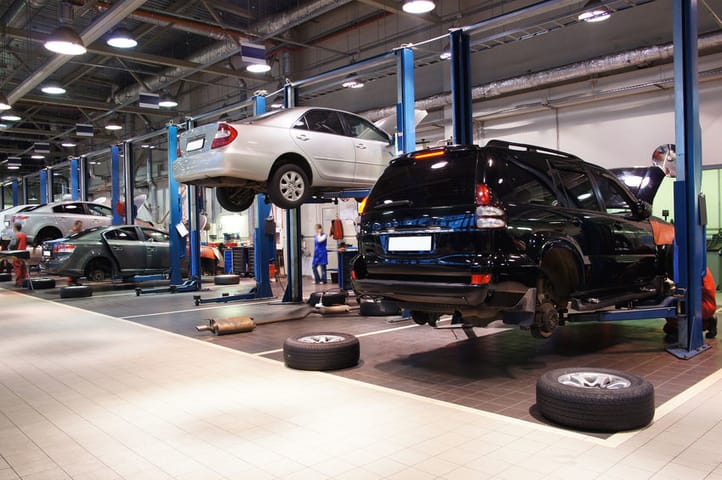All Categories
Featured
EV batteries are huge, complicated, and contain beneficial products, making correct disposal and recycling necessary. The excellent information is that several fixing stores, in partnership with reusing programs, currently use electrical automobile battery reusing solutions.
![]()
In addition, the growing number of electrical automobiles on the roadway has actually created a pressing need for sustainable solutions to manage battery waste. According to sector estimates, countless EV batteries will need recycling in the coming years, making repair work shops an important component of this ecosystem.
Producer Partnerships: Brands like Tesla, Ford, and GM have developed reusing initiatives, and certified service center associated with these suppliers typically promote battery recycling. Third-Party Recyclers: Independent service center sometimes partner with companies focusing on EV battery recycling, such as Redwood Materials or Li-Cycle, which concentrate on removing and recycling useful products from batteries. 3. How the Process Works. When an EV battery reaches the end of its lifecycle, repair stores take numerous steps to guarantee its appropriate recycling:
Examination: Service technicians examine whether the battery can be repurposed for various other usages, such as energy storage space systems. Disassembly: The battery is thoroughly dismantled to divide recyclable materials. Reusing Transfer: The taken down components are sent to specialized centers where metals and other products are recouped for reuse. This procedure decreases waste and makes best use of the value removed from used batteries, sustaining a sustainable EV ecological community.
![]()
Government guidelines and rewards are additionally driving the growth of battery reusing infrastructure. In areas like the EU and California, stringent guidelines on battery disposal ensure that repair shops and producers take obligation for reusing initiatives.
Final thought. Yes, repair stores offering electric automobile battery recycling are becoming increasingly typical. These companies play an important role in creating a lasting EV market by ensuring that used batteries are recycled responsibly.
![]()
As more fixing shops accept these practices, they not only add to environmental security yet additionally improve the lifecycle of electric vehicles. For EV proprietors, choosing repair work shops with reusing services is a significant method to sustain sustainability while maintaining their automobiles.
The future of EV battery recycling is appealing, with repair service shops, suppliers, and governments interacting to deal with the challenges and develop a greener tomorrow.
- Why Reuse EV Batteries? EV batteries are composed of products like lithium, nickel, cobalt, and manganese-- sources that are energy-intensive and finite to remove. Recycling these batteries avoids dangerous chemicals from seeping into the setting and reduces the requirement for mining new resources. By recovering these components, reusing contributes to the circular economy and lowers the carbon impact of EV manufacturing.

In addition, the growing number of electrical automobiles on the roadway has actually created a pressing need for sustainable solutions to manage battery waste. According to sector estimates, countless EV batteries will need recycling in the coming years, making repair work shops an important component of this ecosystem.
- Repair Work Shops and Battery Recycling Programs. Numerous forward-thinking service center are stepping up to provide EV battery recycling solutions. These shops commonly work in collaboration with suppliers, specialized recycling centers, or government-backed programs to make certain batteries are managed securely and successfully.
Producer Partnerships: Brands like Tesla, Ford, and GM have developed reusing initiatives, and certified service center associated with these suppliers typically promote battery recycling. Third-Party Recyclers: Independent service center sometimes partner with companies focusing on EV battery recycling, such as Redwood Materials or Li-Cycle, which concentrate on removing and recycling useful products from batteries. 3. How the Process Works. When an EV battery reaches the end of its lifecycle, repair stores take numerous steps to guarantee its appropriate recycling:
Examination: Service technicians examine whether the battery can be repurposed for various other usages, such as energy storage space systems. Disassembly: The battery is thoroughly dismantled to divide recyclable materials. Reusing Transfer: The taken down components are sent to specialized centers where metals and other products are recouped for reuse. This procedure decreases waste and makes best use of the value removed from used batteries, sustaining a sustainable EV ecological community.
- The Role of Repair Work Shops in Supporting Sustainability. Service centers that provide battery recycling not only help in reducing ecological influence but also strengthen consumer trust. EV proprietors are more probable to select businesses that show ecological responsibility. Some service center go an action further by giving motivations, such as discounts on new batteries or services, to customers that reuse their old ones.

- Difficulties and Future Overview. While battery recycling is expanding, challenges continue to be. Not all repair stores are geared up to handle EV batteries because of their safety and security, intricacy, and dimension demands. As innovation advances and need for reusing increases, more fixing shops are likely to adopt these solutions.
Government guidelines and rewards are additionally driving the growth of battery reusing infrastructure. In areas like the EU and California, stringent guidelines on battery disposal ensure that repair shops and producers take obligation for reusing initiatives.
Final thought. Yes, repair stores offering electric automobile battery recycling are becoming increasingly typical. These companies play an important role in creating a lasting EV market by ensuring that used batteries are recycled responsibly.

As more fixing shops accept these practices, they not only add to environmental security yet additionally improve the lifecycle of electric vehicles. For EV proprietors, choosing repair work shops with reusing services is a significant method to sustain sustainability while maintaining their automobiles.
The future of EV battery recycling is appealing, with repair service shops, suppliers, and governments interacting to deal with the challenges and develop a greener tomorrow.
Latest Posts
Identifying When Your Car Needs Expert Auto Repair at Montclare Auto Repair
Published May 26, 25
1 min read
Join WyHy FCU – Top Benefits for Your Financial Future
Published May 25, 25
1 min read
Reliable Expenses Door Solutions for Houses and Organizations
Published May 24, 25
1 min read